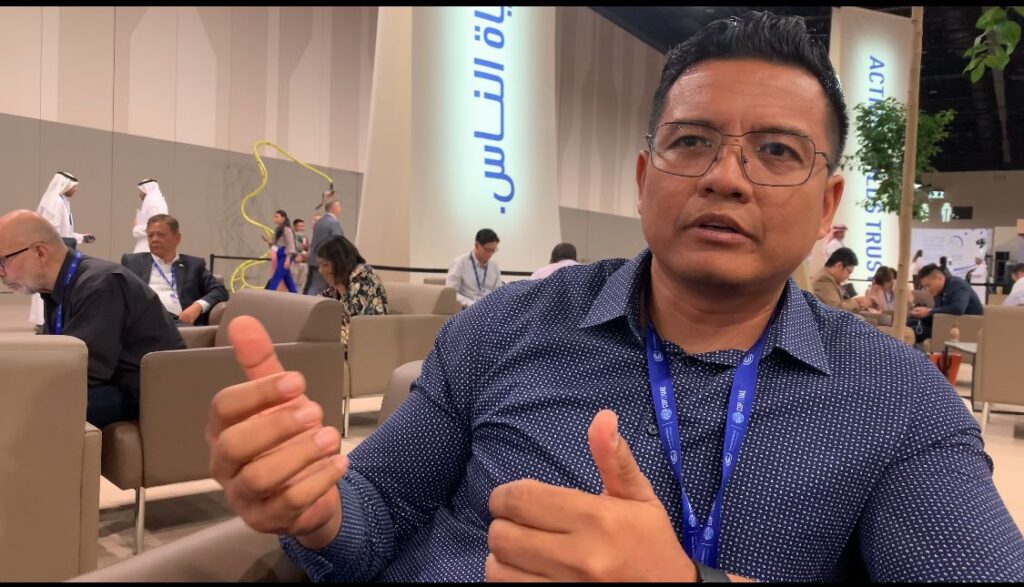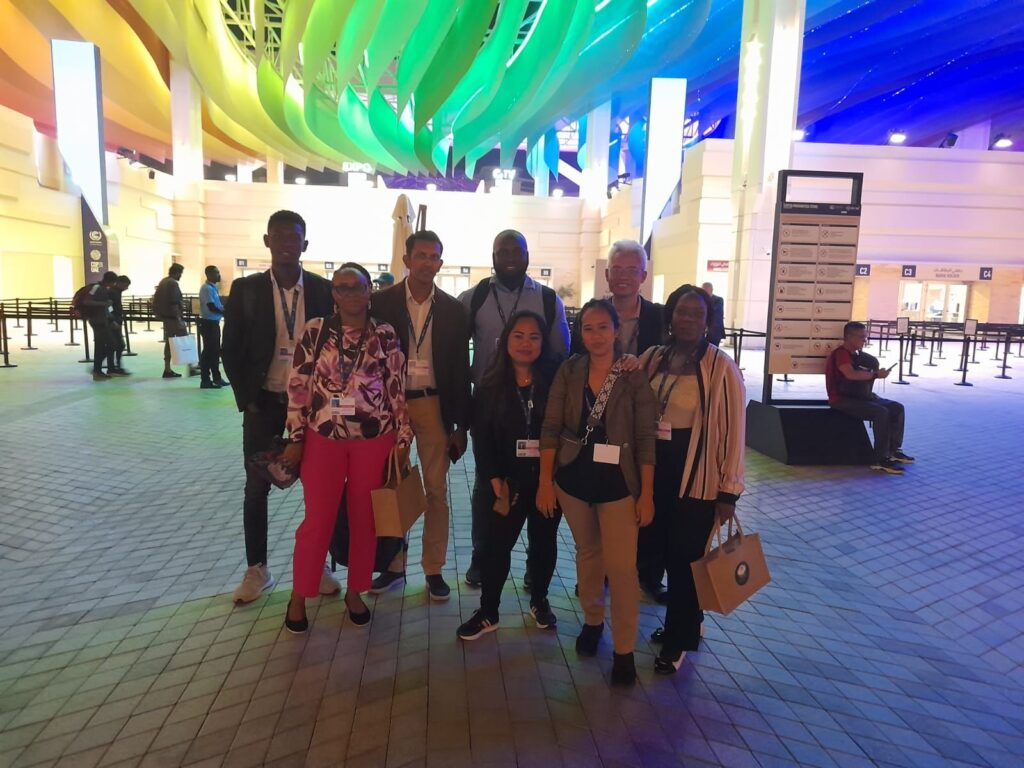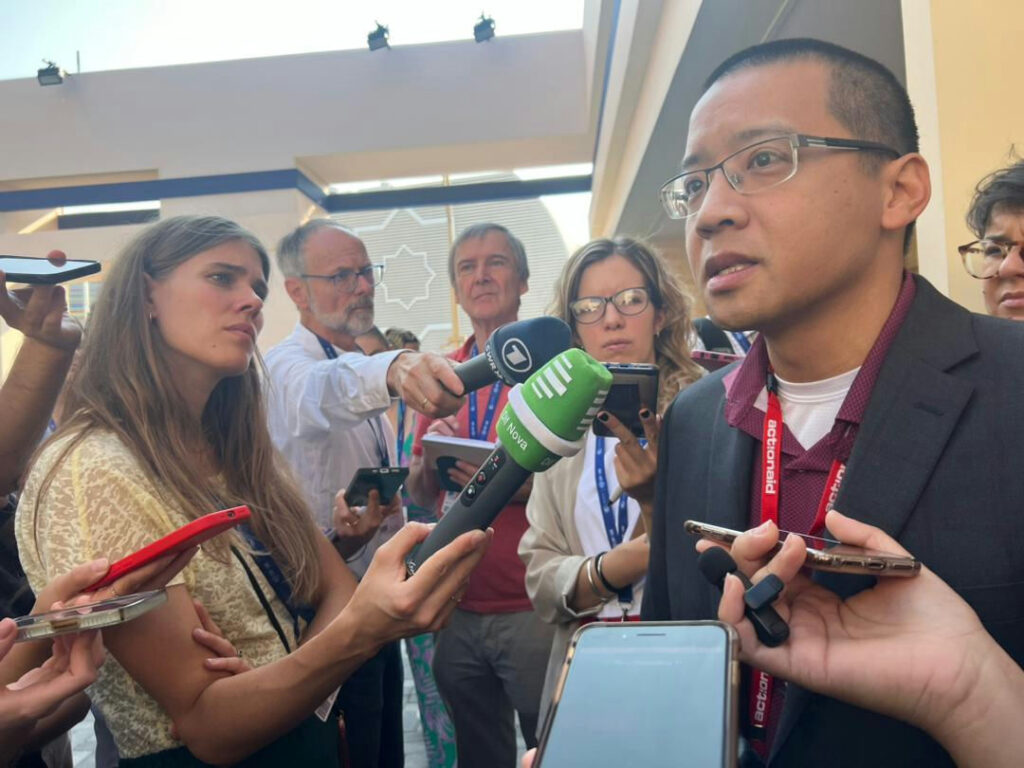During the 28th Climate Conference in Dubai, United Arab Emirates (UAE), significant negotiations are taking place on the phasing out of fossil fuels. For example, the Surinamese negotiating team recently had to intervene in the Alliance of Small Island States (AOSIS) context to prevent dangers to the development of the oil and gas industry. This is what Minister Marcio Dasai of Spatial Planning and Environment (ROM) said in conversation with Suriname Herald.

Suriname, like neighboring country Guyana, is of the opinion that as a developing country it should still be given the opportunity to develop oil and gas reserves, while on the other hand it is working on the energy transition.
Intervention Suriname
Ivette Patterzon, deputy director of climate change ROM and member of the Surinamese negotiating team, explains what happened. According to her, a text regarding the phasing out of fossil fuels was circulating within AOSIS. This would state that no new investments will be permitted in the field of oil and gas. Both Patterzon and Dasai indicate that this was a crucial moment for Suriname to intervene. That has also been done.
Patterzon says that Suriname has indicated that it does not support this phrase. “We then indicated that the text should be adjusted to indicate that no new investments will be made, but for the industrialized, already developed countries, which are the major polluters. They must take the lead in this, so that developing countries such as Guyana and Suriname still have the space to exploit their oil reserves,” says Patterzon.

Suriname’s negotiating team is formed by Ivette Patterzon, Jurmen Adang, Vijona Dipowirono, Tiffany van Ravenswaay, all from ROM. Furthermore, Consuela Paloeng and Rene Somopawiro from the Foundation for Forest Management and Forest Supervision (SBB) and Iwan Samoender from the Ministry of Agriculture, Livestock and Fisheries (LVV) are also in the team. Paulette Bynoe serves as advisor.
Justice important in phasing out fossil fuels
Dasai recognizes that phasing out fossil fuels is necessary. However, according to him, a “one size fits all” principle should not be applied. According to him, the position of certain countries is that there will be no new oil developments.
However, climate finance is not adequately made available to developing countries such as Suriname, which are vulnerable to the consequences of climate change. According to Dasai, the dangers of coal, which is currently being fully used again by Germany, among others, are not being sufficiently considered.
Dasai’s view is somewhat supported in this view by Brandon Wu of ActionAid, an international NGO that promotes sustainable and just development. Wu and two other experts today addressed a group of journalists in front of the media center of the climate conference. An update on the negotiations is provided here.
Wu emphasized that phasing out fossil fuels is crucial to achieving the set climate goals of 2030 and 2050. This therefore requires clear, concrete and “hard” formulations. According to Wu, phasing out fossil fuels should also be accompanied by the term “justice”.

In this context, justice means that the major industrialized countries should take the lead in phasing out all fossil fuels, namely oil, coal and gas. According to Wu, this does not mean that countries such as Suriname are going scot-free. Developing countries must also take measures for the transition to renewable energy. However, he believes that they must receive the necessary support from the industrialized countries, especially with the necessary financial resources.
US hypocrisy during the Global Stocktake (GST) negotiations
Wu explains that phasing out fossil fuels will most likely be included in the text for the first ‘Global Stocktake’ under the Paris Agreement. The GST is a representation and analysis of countries’ efforts to tackle the climate crisis. As the end of the climate conference is approaching, the conference president Sultan Al Jaber has appointed ministerial pairs to work with the parties to seek political consensus for the final texts.
With regard to GST, Barbara Creecy (South Africa) and Dan Jørgensen (Denmark) act as mediators between the parties. At the time of publishing this article, the recent GST text included phrases regarding fairness in relation to the phase-out of fossil fuels.
According to Wu, the United States (US) is a major opponent of this. He further explains that there is – so far – no field or path to be seen in the GST text regarding climate financing. He also paints a picture of the hypocrisy of the US, which, according to him, has the largest oil expansion plans worldwide until 2050. Wu finds this problematic, especially considering that the US has barely 17.5 million US dollars for the “loss and damage” fund. dollars will contribute.
This story was published as part of Climate Tracker’s COP28 Climate Justice Reporting Fellowship